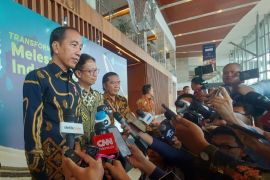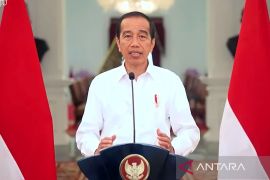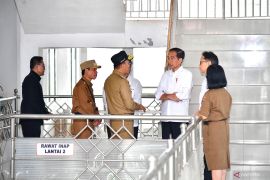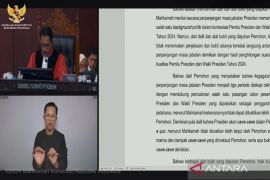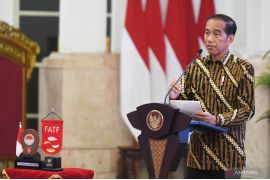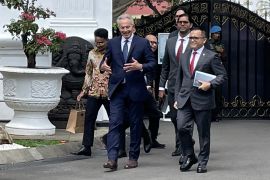"It has not yet been decided," Jokowi said.Jakarta (ANTARA News) - President Joko Widodo announced here on Monday that no date had yet been set for raising the price of subsidized fuel oils.
"It has not yet been decided," he noted in response to the questions posed by newsmen after receiving Chinese Foreign Minister Wang Yi at the Merdeka Palace.
Vice President Jusuf Kalla has hinted that the fuel price hike will come into effect this month after thorough preparations have been made, including the distribution of "Indonesia Healthy Card" (KIS) and "Indonesia Smart Card" (KIP) to eligible citizens.
The recipients of the cards are entitled to get free education and health services.
"In short, it will be done this month," the vice president informed newsmen at his office here on Monday.
He said the government is still awaiting the distribution of KIS and KIP cards to the entitled citizens.
The vice president reiterated that the fuel price hike would be implemented as the funds used for fuel subsidy would be directed towards the welfare of the poor.
"Now, our fuel subsidy goes to those who have cars. That is what we are going to take and give to the poor," he emphasized.
Coordinating Minister for Economic Affairs Sofyan Djalil has emphasized that the government would raise the price of subsidized fuel oils before 2015.
The consumption of subsidized fuel oils has been estimated to surpass the quota set at 46 million kiloliters until the end of the year.
Sofyan stated that the government will adopt other more effective measures rather than merely controlling consumption.
"In short, we will strive to meet the quota without the people having to queue up as this will not settle the problems," he noted.
Finance Minister Bambang Brodjonegoro affirmed that reforming the fuel subsidy policy was not an easy task as the decision would affect the real sector, and so, the fate of the poor must be taken into consideration.
According to estimates, the fuel price adjustment would provide a wider fiscal room for the government to spend on infrastructure and social programs and reduce the oil and gas imports and keep oil consumption in check.
In the 2014 revised budget, the previous government had allocated Rp5 trillion to pay for social protection or compensation for the poor who would be affected by the fuel price hike in case it is implemented before the end of 2014.(*)
Editor: Heru Purwanto
Copyright © ANTARA 2014
